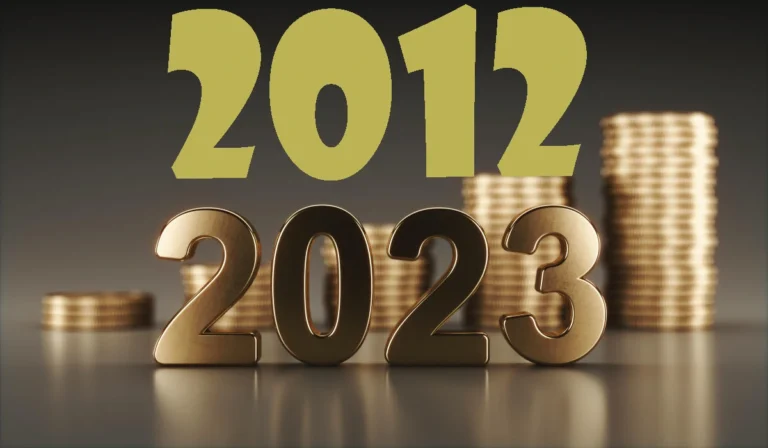The years spanning from 2023-2012 represent a significant chapter in human history, marked by a multitude of transformative events and paradigm shifts across various domains. As we embark on an exploration of this decade, we are met with a tapestry of political upheavals, technological advancements, economic fluctuations, and societal evolutions that have shaped the world we inhabit today. From the brink of global crises to moments of unprecedented progress, the interplay of these forces has left an indelible imprint on the fabric of our collective existence.
This retrospective journey offers an opportunity to delve into the intricacies of this dynamic period, unraveling the threads of continuity and change that have been woven together to define our recent past. Through an examination of key themes, pivotal moments, and underlying trends, we aim to gain insight into the complexities of the years 2023-2012 and the lessons they hold for the future.
Global Events that Defined the Decade from 2023-2012
The decade spanning from 2012 to 2023 was punctuated by a series of global events that left an indelible mark on history, shaping the course of international affairs and redefining the collective consciousness of humanity. From geopolitical upheavals to natural disasters, each event underscored the interconnectedness of our world and the fragility of our existence. The Arab Spring, which ignited in 2011 and cascaded into subsequent years, epitomized the power of grassroots movements in challenging authoritarian regimes and demanding political reform across the Middle East and North Africa.
The Syrian civil war, which erupted in 2011 and persisted throughout the decade, tragically illustrated the human cost of conflict and displacement, with millions of Syrians fleeing their homes in search of safety and stability. The rise of populist movements and nationalist sentiments in various parts of the world, including the Brexit referendum in 2016 and the election of Donald Trump as President of the United States in the same year, reflected a growing backlash against globalization and multiculturalism, reshaping the political landscape in profound ways.
Moreover, the COVID-19 pandemic, which emerged in late 2019 and raged on into the early 2020s, brought the world to a standstill, exposing vulnerabilities in healthcare systems, exacerbating social and economic inequalities, and fundamentally altering the way we live, work, and interact with one another. As we reflect on these and other global events that defined the decade, it becomes evident that the challenges of the 21st century require collective action, solidarity, and a renewed commitment to building a more equitable and sustainable future for all.
Political Landscapes and Diplomatic Dynamics from 2023-2012
The political landscapes and diplomatic dynamics of the decade spanning from 2012 to 2023 were marked by a complex interplay of continuity and change, as traditional power structures clashed with emerging global trends. The era witnessed significant shifts in geopolitical alignments, with rising powers such as China asserting their influence on the world stage and challenging the dominance of Western hegemony.
Tensions simmered in various regions, from the ongoing conflicts in the Middle East and Eastern Europe to the territorial disputes in the South China Sea, underscoring the fragility of international relations and the persistent threat of conflict. Diplomatic efforts to address these challenges were often stymied by competing interests and geopolitical rivalries, highlighting the need for multilateral cooperation and conflict resolution mechanisms. At the same time, the rise of populist leaders and nationalist movements in many parts of the world injected new volatility into global politics, with the rhetoric of isolationism and protectionism threatening to upend decades of international cooperation and diplomacy.
Against this backdrop, efforts to tackle pressing global issues such as climate change, nuclear proliferation, and human rights remained hampered by geopolitical tensions and competing national interests. As we look back on the political landscapes and diplomatic dynamics of the decade, it is clear that the challenges of the 21st century require bold leadership, visionary diplomacy, and a renewed commitment to collective action in pursuit of peace, security, and prosperity for all.
Technological Prowess and Digital Revolution from 2023-2012
The decade from 2012 to 2023 bore witness to an unprecedented surge in technological prowess and a sweeping digital revolution that fundamentally reshaped the fabric of society. Advancements in fields such as artificial intelligence, blockchain, and biotechnology accelerated at an unprecedented pace, revolutionizing industries and transforming the way we live, work, and communicate.
The proliferation of smartphones, social media platforms, and cloud computing services brought about a profound democratization of information and connectivity, empowering individuals and communities to collaborate, innovate, and mobilize like never before. Moreover, breakthroughs in renewable energy technologies and the advent of the Internet of Things (IoT) promised to usher in a new era of sustainability and efficiency, offering solutions to some of the most pressing challenges facing humanity, from climate change to resource scarcity.
However, alongside these remarkable advancements came new ethical dilemmas and societal challenges, including concerns about data privacy, algorithmic bias, and the impact of automation on jobs and inequality. As we reflect on the technological prowess and digital revolution of the past decade, it is clear that the opportunities and risks posed by emerging technologies require thoughtful regulation, ethical governance, and a commitment to harnessing innovation for the collective good.
Societal Trends and Cultural Metamorphosis from 2023-2012
The period from 2012 to 2023 witnessed a profound metamorphosis in societal trends and cultural dynamics, driven by a confluence of technological innovation, demographic shifts, and changing values. Social media platforms have become ubiquitous, reshaping the way we connect, communicate, and consume information, while also giving rise to new forms of digital activism and social movements.
The #MeToo movement, which gained momentum in 2017 and reverberated across industries worldwide, sparked conversations about gender equality and sexual harassment, catalyzing a cultural reckoning and calls for systemic change. Meanwhile, demographic changes, including aging populations and increasing cultural diversity, reshaped the fabric of societies, challenging traditional norms and fostering greater inclusivity and acceptance of difference.
The rise of the gig economy and remote work also transformed the nature of employment and labor relations, blurring the boundaries between work and leisure and giving rise to new forms of flexibility and precarity. However, alongside these positive developments, the decade also saw the resurgence of nationalist and populist movements, fueled by concerns about immigration, globalization, and economic insecurity, posing challenges to social cohesion and multiculturalism. As we reflect on the societal trends and cultural metamorphosis of the past decade, it becomes clear that the dynamics of change and continuity will continue to shape our collective identity and aspirations for the future.
Environmental Challenges and Conservation Endeavors from 2023-2012
The years from 2012 to 2023 bore witness to an escalation of environmental challenges and a growing urgency to address them through conservation endeavors and sustainable practices. Climate change emerged as a defining issue of the decade, with rising global temperatures, extreme weather events, and melting ice caps serving as stark reminders of the consequences of unchecked carbon emissions.
In response, the international community came together to negotiate landmark agreements such as the Paris Agreement in 2015, aimed at limiting global warming and transitioning to a low-carbon economy. At the same time, grassroots movements and advocacy efforts mobilized millions of people around the world to demand action on environmental issues, from protecting biodiversity and preserving natural habitats to phasing out single-use plastics and promoting renewable energy.
Technological innovations, such as solar and wind power, electric vehicles, and carbon capture technologies, offered promising solutions to mitigate climate change and reduce environmental impact. However, despite these efforts, the decade also saw continued deforestation, habitat destruction, and biodiversity loss, driven by factors such as urbanization, industrial agriculture, and extractive industries. As we look ahead to the future, the need for collective action and concerted efforts to address environmental challenges has never been greater, underscoring the importance of conservation endeavors and sustainable practices in safeguarding the health and well-being of our planet for generations to come.
Advancements in Health and Medical Sciences from 2023-2012
The period from 2012 to 2023 witnessed remarkable advancements in health and medical sciences, revolutionizing the way we prevent, diagnose, and treat diseases. Breakthroughs in genomics, personalized medicine, and immunotherapy offered new hope for patients with cancer and other complex diseases, enabling more targeted and effective treatments tailored to individual genetic profiles.
Meanwhile, the development of mRNA vaccine technology represented a game-changer in the fight against infectious diseases, culminating in the rapid development and deployment of vaccines against COVID-19 in record time. Moreover, innovations in digital health technologies, such as telemedicine, wearable devices, and health monitoring apps, expanded access to healthcare services and empowered individuals to take a more proactive role in managing their health and wellness.
However, alongside these advancements came new challenges and ethical dilemmas, including concerns about data privacy, equity in access to healthcare, and the responsible use of emerging technologies. As we reflect on the progress made in health and medical sciences during this decade, it becomes clear that collaboration, innovation, and a commitment to ethical principles will be essential in harnessing the potential of science to improve the health and well-being of people around the world.
Education Evolution and Knowledge Acquisition from 2023-2012
The years spanning from 2012 to 2023 witnessed a profound evolution in education and knowledge acquisition, driven by technological innovation, changing societal needs, and a growing recognition of the importance of lifelong learning. The rise of online learning platforms, Massive Open Online Courses (MOOCs), and digital resources democratized access to education, breaking down barriers of geography, cost, and time. This digital revolution in education not only expanded educational opportunities for millions of learners worldwide but also transformed traditional pedagogical approaches, emphasizing self-directed learning, collaboration, and skill development for the 21st-century workforce.
Conclusion:
In conclusion, the decade from 2023-2012 was a period of profound change, marked by significant advancements, challenges, and transformations across various spheres of human endeavor. From political upheavals and technological revolutions to economic fluctuations and societal shifts, the era left an indelible mark on history, shaping the course of human civilization in ways both profound and lasting. As we reflect on the myriad events and developments that defined this transformative decade, it becomes clear that the challenges of the 21st century require collective action, innovation, and a renewed commitment to building a more equitable, sustainable, and resilient future for all.






